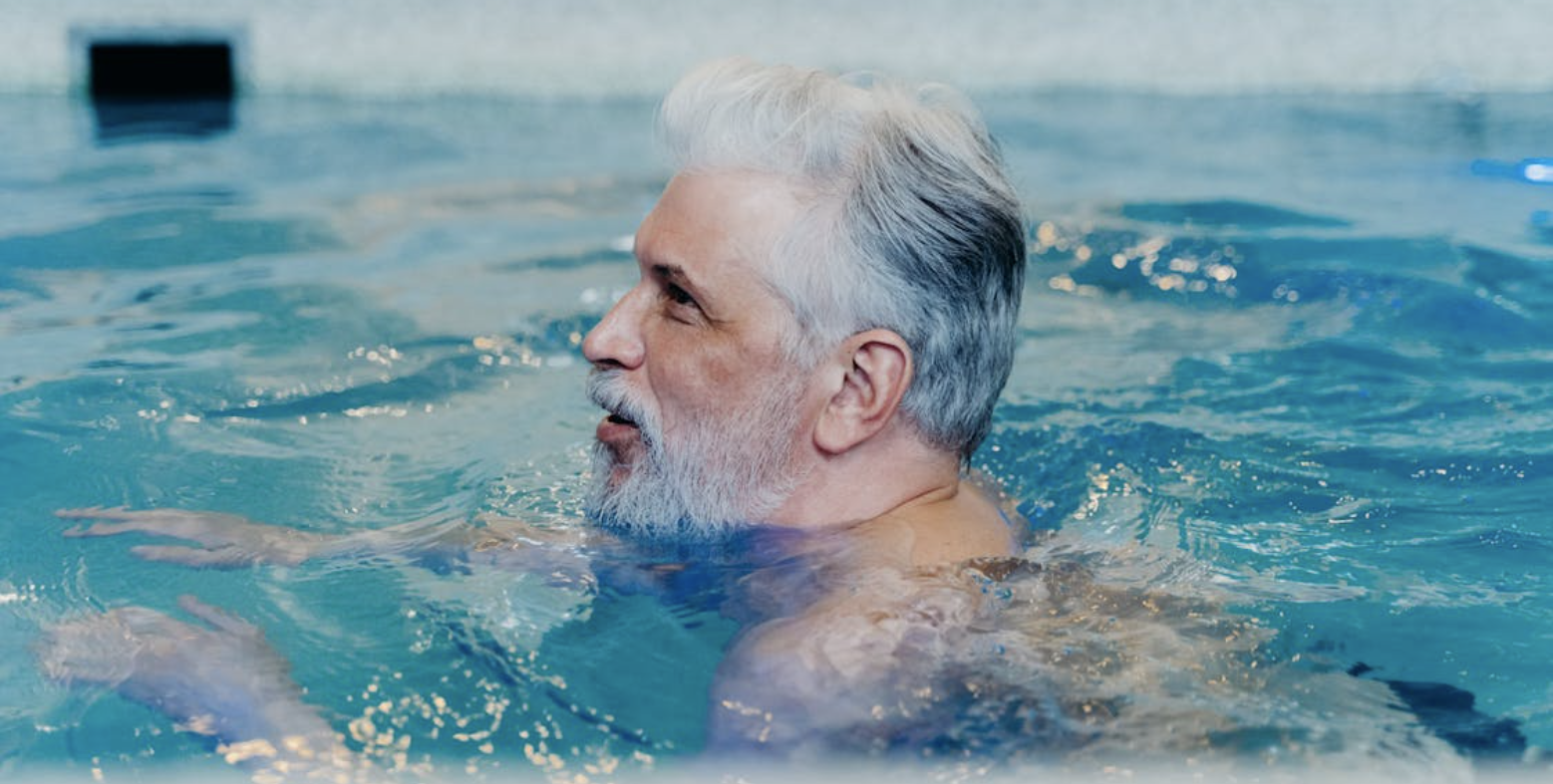Dive Into the Benefits: Exploring Aquatic Exercise for Seniors
The golden years should be a time of exploration, relaxation, and, most importantly, maintaining health and vitality. As we age, our bodies undergo various changes, making traditional exercises more challenging and, sometimes, less appealing. This is where the magic of aquatic exercise comes into play, offering a buoyant solution to staying fit, flexible, and fabulous. In this comprehensive guide, we’ll navigate through the myriad benefits that aquatic exercise offers to seniors, emphasizing why it’s never too late to dive into a healthier lifestyle.
Introduction to Aquatic Exercise for Seniors
Aquatic exercise, a term that encompasses a variety of activities performed in water, is not just a leisurely swim in the pool but a gateway to maintaining and enhancing health for seniors. The unique properties of water, including its buoyancy, resistance, and cooling effect, create an ideal environment for exercise that is both effective and gentle on the body. Whether it’s water aerobics, lap swimming, or gentle water-based yoga, the aquatic environment offers a versatile platform for seniors to engage in physical activity.
The beauty of aquatic exercise for seniors lies in its accessibility. Regardless of fitness level, mobility issues, or previous exercise experience, the water welcomes all. It’s a realm where gravity’s harsh impact lessens, movements become smoother, and the risk of injury drops significantly. This inclusivity not only opens the door to improved physical health but also encourages social interaction and mental well-being.
Embarking on an aquatic exercise journey requires little more than a swimsuit and a willingness to try something new. Community centers, local pools, and specialized fitness clubs often offer classes and programs designed with seniors in mind, making it easy to find a welcoming, supportive community.
Benefits of Aquatic Exercise for Seniors
The benefits of aquatic exercise for seniors are vast and varied, touching on nearly every aspect of health and wellness. Firstly, engaging in regular aquatic exercise can significantly enhance cardiovascular health. The water’s resistance ensures the heart works steadily, improving cardiac function and circulation while being gentle on the body.
Joint health is another area where aquatic exercise shines. The buoyancy of water reduces the weight on joints, minimizing pain and discomfort during exercise. This allows for a greater range of motion and a smoother path to strengthening the muscles surrounding the joints, which is crucial for mobility and pain management.
Furthermore, the mental health advantages of engaging in aquatic exercise cannot be overstated. Water has a natural calming effect, and the act of moving in it can reduce stress, alleviate anxiety, and promote a sense of well-being. For seniors, this aspect of aquatic exercise is invaluable, offering a serene escape from the stresses of daily life and a joyful way to connect with others.
How Aquatic Exercise Improves Cardiovascular Health
Delving deeper into the cardiovascular benefits, aquatic exercise stands out as a champion for senior heart health. The constant yet gentle resistance provided by water makes the heart muscle stronger, a key factor in preventing heart disease and managing blood pressure. Additionally, the rhythmic nature of many aquatic exercises, such as swimming or water aerobics, enhances cardiovascular endurance, allowing seniors to perform daily activities with less fatigue.
The improvement in circulation is another noteworthy benefit. As seniors engage in aquatic exercise, their bodies demand more oxygen, which in turn stimulates blood flow. This enhanced circulation is crucial for delivering nutrients to tissues, aiding in recovery, and promoting overall cardiovascular health.
Moreover, the social aspect of group aquatic exercises can boost heart health in a less direct, yet equally important way. Attending classes and interacting with peers foster a sense of community and belonging, which has been linked to lower levels of stress and a healthier heart.
Aquatic Exercise for Joint Health and Pain Management
For those grappling with arthritis, osteoporosis, or general joint pain, aquatic exercise offers a soothing salve. The water’s buoyancy significantly reduces the load on weight-bearing joints, allowing for movement without the harsh impact associated with exercises like running or weightlifting. This gentle approach helps in managing pain and improving joint function without exacerbating existing conditions.
Water’s natural resistance plays a pivotal role in strengthening the muscles around the joints. Stronger muscles mean better support and less strain on the joints, which can lead to a reduction in pain and improved mobility. Furthermore, the warmth of the water in many pools can help relax muscles and joints, further reducing discomfort and enhancing the range of motion.
Regular participation in aquatic exercises can lead to long-term improvements in joint health. Over time, seniors can experience less stiffness, reduced pain levels, and an overall improvement in the quality of life. These exercises become not just a form of physical therapy but a joyful, pain-managed way to stay active and healthy.
Enhancing Muscle Strength and Flexibility with Aquatic Exercise
Building muscle strength and flexibility is crucial for seniors, not only for maintaining independence but also for preventing falls and injuries. Aquatic exercise, with its unique blend of resistance and support, offers an excellent means to these ends. The resistance of water is uniform and can be adjusted by changing speed or using different aquatic tools, making strength training customizable and effective.
Flexibility gains in the aquatic environment are equally impressive. The support of water allows for a greater range of motion while minimizing the risk of injury. Exercises that might be challenging on land become achievable in water, enabling seniors to stretch further and strengthen muscles that are crucial for daily activities.
The combination of strength and flexibility enhancements contributes to better posture, improved balance, and a higher quality of life. Seniors engaging in regular aquatic exercise can enjoy the freedom of movement and a reduced risk of falls, a common concern in older age.
The Mental Health Benefits of Aquatic Exercise for Seniors
The impact of aquatic exercise on mental health is profound and multifaceted. The act of moving in water can be incredibly soothing, offering a sense of calm and relaxation that is hard to find elsewhere. This natural stress-reliever is a boon for seniors, helping to combat anxiety, depression, and the stresses of daily life.
The social aspect of aquatic exercise also plays a critical role in mental well-being. Joining classes or groups provides opportunities for social interaction, fostering friendships, and combating loneliness, a significant issue for many seniors. These social connections can lead to increased happiness, a sense of community, and improved mental health.
Moreover, the sense of accomplishment and independence gained through aquatic exercise can boost confidence and self-esteem. As seniors notice improvements in their physical health, they also experience a lift in their spirits, contributing to a more positive outlook on life.
Safety Tips for Seniors Participating in Aquatic Exercise
While aquatic exercise is inherently safer than many land-based activities, certain precautions should be taken to ensure a safe and enjoyable experience. Seniors should consult with a healthcare provider before beginning any new exercise program, especially if they have pre-existing health conditions.
Choosing the right environment is also crucial. Facilities with trained lifeguards, appropriate water temperatures, and classes designed for seniors are ideal. It’s important to stay hydrated, wear water shoes for added traction, and use any necessary assistive devices to prevent slips and falls.
Listening to one’s body is essential. If an exercise feels uncomfortable or painful, it’s important to modify the activity or take a break. The goal of aquatic exercise is to enhance health and well-being, not to push beyond safe limits.
Types of Aquatic Exercise for Seniors
The variety of aquatic exercises available ensures that there is something for everyone. Water aerobics, for instance, combines cardiovascular and strength training in a fun, group setting. Lap swimming is excellent for those looking for a more solitary, meditative exercise experience, while aquatic yoga and tai chi offer gentle ways to improve flexibility and reduce stress.
Aquatic walking or jogging is a fantastic option for beginners, providing significant cardiovascular and muscular benefits without the need for swimming skills. Additionally, specialized equipment, such as water weights and noodles, can add variety and challenge to the routine, keeping the exercise engaging and effective over time.
Finding Aquatic Exercise Programs and Classes for Seniors
Locating the right aquatic exercise program or class can seem daunting, but many resources are available to help. Community centers, local YMCAs, and senior centers often offer aquatic exercise classes specifically designed for older adults. These programs provide a supportive, welcoming environment ideal for those new to aquatic exercise or looking to join a community of like-minded individuals.
Online resources and social media can also be valuable tools in finding local classes and connecting with others who share an interest in aquatic exercise. Many facilities offer trial classes or open swim times, allowing seniors to explore different options and find the best fit for their interests and needs.
Conclusion: Embracing the Benefits of Aquatic Exercise for Seniors
Aquatic exercise offers a world of benefits for seniors, from improving physical health to enhancing mental well-being. Its gentle nature, combined with the supportive and versatile environment of water, makes it an ideal form of exercise for older adults. By embracing aquatic exercise, seniors can enjoy a healthier, more vibrant life, filled with joy, community, and well-being.
The journey to a healthier, happier senior lifestyle begins with a single step—or, in this case, a splash. Dive into the world of aquatic exercise and discover the myriad ways it can enrich your life. Whether you’re looking to strengthen your body, soothe your mind, or simply have fun, aquatic exercise offers a refreshing path to achieving your health and wellness goals.












